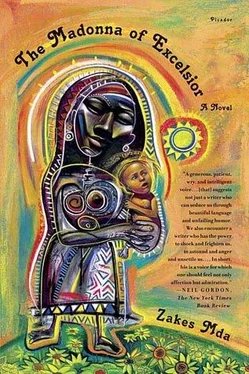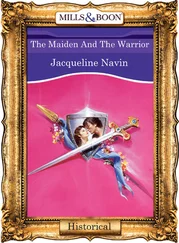Popi Pule. Stealer of surnames from cuckolded men!
She was fuming inside while she displayed an indifferent outside.
Jacomina Bornman, now Jacomina Cronje, rushed in, breathing as though she had been running. She whispered something to Tjaart Cronje. Obviously not the sweet nothings of newly-weds, for Tjaart left her to complete the banking transaction while he shot out of Volkskas Bank.
Jacomina took forever to finish whatever she was doing with the teller, which included exchanging snippets of gossip. When she turned to leave, she saw Popi. She looked at her for a long time, until Popi feared that she might have read her evil thoughts. Jacomina slowly broke into a smile as a glimmer of recognition dawned on her.
“Dumela,” she greeted in Sesotho. Like all Afrikaners who grew up in Excelsior, she spoke fluent Sesotho. Like almost all Afrikaner natives of the eastern Free State.
“Dumela,” responded Popi without any enthusiasm.
“I remember you,” said Jacomina. “You used to sit outside our garden parties with your mother. Why, you have grown into such a big beautiful girl.”
Popi took exception to being remembered by her. But she did not say anything. These people had no business knowing her. Why should this Jacomina continue to hoard memories of her back when she used to hang around garden parties with Niki? That must have been eighteen years ago. She had only been five then. What twisted god had cursed this Jacomina with such a cruel streak of memory? She, Popi, did not remember this Jacomina from the garden party days. She must have been one of the big white girls who used to pinch her cheeks before they gave her a sweet or a cookie.
“What happened to your mother? Is she still alive?” asked Jacomina innocently.
“What would make her dead?” asked Popi, taking further offence that this Jacomina should dare to associate Niki with death.
“Don’t be rude, girl,” said Jacomina. “I am being nice to you. It’s just that I no longer see her at any of our garden parties.”
As if you had invited her!
She was being nice. Like the coochi coochi coo women in the bus. Her memory of their niceness was as vivid as if it were yesterday. Nice. Would people ever stop this foolish notion of being nice to her? Didn’t they know that she was a boesman? No one had any right to be nice to a boesman. Didn’t they know that?
Popi walked home with Viliki’s money hidden in her bra. At the junction where the dirt road to Mahlatswetsa Location joined the four-lane tarred road that became the only street of the town, she saw a sea of people coming her way. They were trotting and toyi-toying like prancing horses, and chanting slogans. Popi remembered that Viliki had mentioned something about Solomon Mahlangu Day. May 1993. They were celebrating Solomon Mahlangu, a young hero from Viliki’s Movement who was hanged by the Boers during the Wars of Liberation. The people were using this day to demand the release of all political prisoners.
All political prisoners, Viliki? There are no political prisoners in Excelsior. How can you demand that the Boers of Excelsior release all political prisoners? Excelsior is part of South Africa, Popi. There are still political prisoners in South Africa. Even though we will have our first general elections next year. There are still political prisoners in the jails of this country. We are taking a memorandum to the police station demanding that all political prisoners in South Africa be released forthwith!
Before the demonstrating crowd could reach her — or before she could reach the demonstrating crowd — a platoon of policemen approached from the direction of the town. Policemen in police vans. Police reservists in their private bakkies. A convoy of them. They passed Niki as she walked towards the crowd. She saw that the policemen were led by Captain Klein-Jan Lombard. The police reservists were under the command of Tjaart Cronje. So that was where he was rushing! Among the reservists was Johannes Smit.
The platoon stopped in front of the crowd and Captain Klein-Jan Lombard instructed it to disperse and go back peacefully to Mahlatswetsa Location. Viliki, who was at the head of the crowd, shouted that the crowd would not disperse. The crowd was marching to the police station to hand in a memorandum. The people of Mahlatswetsa were demanding the release of political prisoners.
“That’s not a local issue,” Captain Klein-Jan Lombard tried to reason. “Is has nothing to do with the police of Excelsior.”
“It has everything to do with the police of South Africa in every square inch of this country,” yelled Viliki. “And you want a local issue, do you? We demand that Adam de Vries be removed as the Administrator of our township. Get the Conservative Party out of our affairs!”
The party that was ruling Excelsior at the time was the Conservative Party — another splinter group from the National Party. Unlike the Herstigte Nasionale Party, it was a strong group, which even had significant representation in Parliament. Hence Adam de Vries, who continued to be the leading light of the National Party, was no longer the mayor of Excelsior. The mayoral chain was now worn by the arch-right-winger, Gys Uys. Tjaart Cronje and Johannes Smit were now members of the town council, as representatives of the Conservative Party, in addition to their self-appointed task of policing Excelsior as police reservists. Although Adam de Vries was no longer mayor, and his National Party no longer had power in Excelsior, they let him run Mahlatswetsa Location as Administrator as he professed superior knowledge of “these people”, knowledge gained from his anthropology courses at university.
The police reservists were getting impatient with the official police. One could not reason with these people. There was only one language they understood. Tjaart Cronje opened fire. Johannes Smit followed with his own fire. The crowd screamed and ran in different directions. The policemen and their reservists ran after them, hitting them with the butts of their guns.
Popi was not going to run. She had not been part of the crowd. She was on her way home from the bank. Home, where Niki was waiting for the money in order to buy maize-meal and candles from Sekatle’s shop. Which would make Viliki angry.
Why do you spend my money at that sellout’s shop? Why do you enrich the dog that has made his money from selling our people to the enemy? He is already rich, Viliki. Tour buying at his store or not buying at his store will not make a dent in his wealth. Will not stop him from driving around the location, playing loud music, blowing his hooter for everyone to know Sekatle is driving by. In any case, Viliki, you do not expect us to go all the way to town just to buy a packet of candles, do you? And those shops in town, are they not owned by the enemy? Like your Volkskas Bank?
Something hit Popi on the back of her head. She fell to the ground. She saw a police boot connecting with her face. She felt another crashing into her ribcage. She went numb. She could hear as if from a distance sounds of whips lashing on her body. But she felt no pain. Her body was dead. Even the blood that was spurting out of her nose came from someone else’s body. Not her dead body. She went to sleep next to her dead body.
When she woke up, she was in the back of a rattling bakkie. With many other bleeding bodies piled together. Her body was no longer dead. It ached all over.
The van stopped. Roadblock. Tjaart Cronje, Johannes Smit and a group of police reservists were manning it. Some of them waving red flags with three black sevens forming a swastika that someone had forgotten to complete.
“Where do you think you are going, ntate?” Tjaart Cronje asked in Sesotho. Calling the man “sir” or even “father”. Polite, even in anger. Niki would have been proud of his upbringing.
Читать дальше












